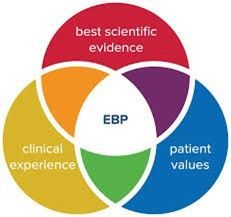5 Questions to Ask for A Corrective Action Plan (CAP)
The more an organization understands what the corrective action plan requires and asks these questions, the more likely it will improve and have fewer difficulties.

A behavioral health organization often must deal with a Corrective Action Plan (CAP). The CAP happens after surveys or audits are conducted when program documents are submitted for approval or at other occurrences. The agency requiring the CAP will identify gaps or missing information that needs to be submitted. Usually, a time frame is necessary for when the CAP will be resolved. What is the best way to tackle a CAP?
Several approaches can be used to conduct a CAP. However, it is best to ask several questions first before starting the process:
1. What is the mindset of the agency or reviewer? When answering a reviewer or auditor's questions for a CAP, you need to know what they want. Their requests may not be explicit; a technical assistance call is often vital to prevent numerous rewrites.
2. Is the deficiency a short-term or long-term problem? For example, a document may be missing from a personnel file, which is an easy fix. However, if the document was omitted due to a lack of oversight of personnel files, it could be a long-term problem. A mechanism should be addressed to prevent the problem from occurring.
3. Is the deficiency an employee problem or a process problem? Suppose an employee misses the deadline for completing a treatment plan; that could be related to the employee's lack of time management. But if the reason for the CAP is due to poor organization on the part of the employees, retraining may be necessary to improve conscientiousness in completing documentation timely.
4. Who will institute the correction and follow up on it? Someone must ensure the problem is fixed now and moving forward. Otherwise, it will stay uncompleted and be open to future deficiencies. An employee can be assigned a task to correct it, and someone must ensure it stays corrected.
5. Is the problem a policy, a document, or something else? The deficiency could mean rewriting or creating a policy or a document. But the deficiency could be related to staff not knowing how to conduct a task, such as clinical work. A system must be in place to keep the change in place.
The more an organization understands what the CAP requires and asks these questions, the more likely it will improve and have fewer difficulties.




